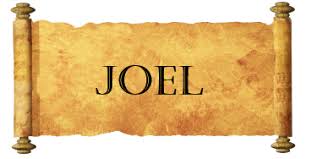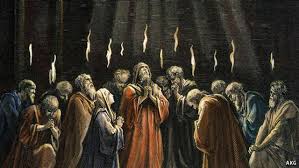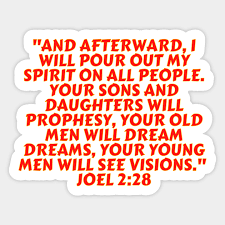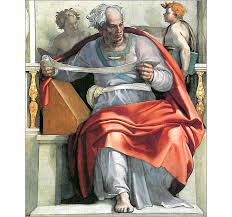
Joel
1 The word of the Lord that came to Joel son of Pethuel:
2 Hear this, O elders,
give ear, all inhabitants of the land!
Has such a thing happened in your days,
or in the days of your ancestors?
3 Tell your children of it,
and let your children tell their children,
and their children another generation.
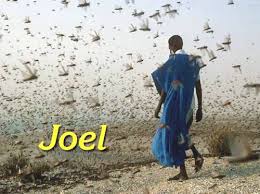
4 What the cutting locust left,
the swarming locust has eaten.
What the swarming locust left,
the hopping locust has eaten,
and what the hopping locust left,
the destroying locust has eaten.
5 Wake up, you drunkards, and weep;
and wail, all you wine-drinkers,
over the sweet wine,
for it is cut off from your mouth.
6 For a nation has invaded my land,
powerful and innumerable;
its teeth are lions’ teeth,
and it has the fangs of a lioness.
7 It has laid waste my vines,
and splintered my fig trees;
it has stripped off their bark and thrown it down;
their branches have turned white.
8 Lament like a virgin dressed in sackcloth
for the husband of her youth.
9 The grain-offering and the drink-offering are cut off
from the house of the Lord.
The priests mourn,
the ministers of the Lord.
10 The fields are devastated,
the ground mourns;
for the grain is destroyed,
the wine dries up,
the oil fails.
11 Be dismayed, you farmers,
wail, you vine-dressers,
over the wheat and the barley;
for the crops of the field are ruined.
12 The vine withers,
the fig tree droops.
Pomegranate, palm, and apple—
all the trees of the field are dried up;
surely, joy withers away
among the people.
13 Put on sackcloth and lament, you priests;
wail, you ministers of the altar.
Come, pass the night in sackcloth,
you ministers of my God!
Grain-offering and drink-offering
are withheld from the house of your God.
14 Sanctify a fast,
call a solemn assembly.
Gather the elders
and all the inhabitants of the land
to the house of the Lord your God,
and cry out to the Lord.
15 Alas for the day!
For the day of the Lord is near,
and as destruction from the Almighty it comes.
16 Is not the food cut off
before our eyes,
joy and gladness
from the house of our God?
17 The seed shrivels under the clods,
the storehouses are desolate;
the granaries are ruined
because the grain has failed.
18 How the animals groan!
The herds of cattle wander about
because there is no pasture for them;
even the flocks of sheep are dazed.
19 To you, O Lord, I cry.
For fire has devoured
the pastures of the wilderness,
and flames have burned
all the trees of the field.
20 Even the wild animals cry to you
because the watercourses are dried up,
and fire has devoured
the pastures of the wilderness.
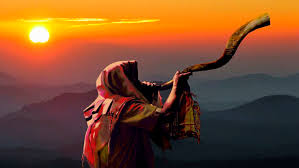
2:1 Blow the trumpet in Zion;
sound the alarm on my holy mountain!
Let all the inhabitants of the land tremble,
for the day of the Lord is coming, it is near—
2 a day of darkness and gloom,
a day of clouds and thick darkness!
Like blackness spread upon the mountains
a great and powerful army comes;
their like has never been from of old,
nor will be again after them
in ages to come.
3 Fire devours in front of them,
and behind them a flame burns.
Before them the land is like the garden of Eden,
but after them a desolate wilderness,
and nothing escapes them.
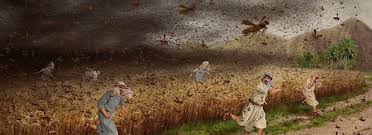
4 They have the appearance of horses,
and like warhorses they charge.
5 As with the rumbling of chariots,
they leap on the tops of the mountains,
like the crackling of a flame of fire
devouring the stubble,
like a powerful army
drawn up for battle.
6 Before them peoples are in anguish,
all faces grow pale.
7 Like warriors they charge,
like soldiers they scale the wall.
Each keeps to its own course,
they do not swerve from their paths.
8 They do not jostle one another,
each keeps to its own track;
they burst through the weapons
and are not halted.
9 They leap upon the city,
they run upon the walls;
they climb up into the houses,
they enter through the windows like a thief.
10 The earth quakes before them,
the heavens tremble.
The sun and the moon are darkened,
and the stars withdraw their shining.
11 The Lord utters his voice
at the head of his army;
how vast is his host!
Numberless are those who obey his command.
Truly the day of the Lord is great;
terrible indeed—who can endure it?
12 Yet even now, says the Lord,
return to me with all your heart,
with fasting, with weeping, and with mourning;
13 rend your hearts and not your clothing.
Return to the Lord, your God,
for he is gracious and merciful,
slow to anger, and abounding in steadfast love,
and relents from punishing.
14 Who knows whether he will not turn and relent,
and leave a blessing behind him,
a grain-offering and a drink-offering
for the Lord, your God?
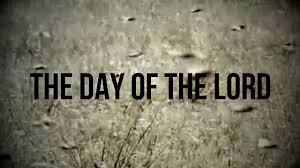
15 Blow the trumpet in Zion;
sanctify a fast;
call a solemn assembly;
16 gather the people.
Sanctify the congregation;
assemble the aged;
gather the children,
even infants at the breast.
Let the bridegroom leave his room,
and the bride her canopy.
17 Between the vestibule and the altar
let the priests, the ministers of the Lord, weep.
Let them say, ‘Spare your people, O Lord,
and do not make your heritage a mockery,
a byword among the nations.
Why should it be said among the peoples,
“Where is their God?” ’
18 Then the Lord became jealous for his land,
and had pity on his people.
19 In response to his people the Lord said:
I am sending you
grain, wine, and oil,
and you will be satisfied;
and I will no more make you
a mockery among the nations.
20 I will remove the northern army far from you,
and drive it into a parched and desolate land,
its front into the eastern sea,
and its rear into the western sea;
its stench and foul smell will rise up.
Surely he has done great things!
21 Do not fear, O soil;
be glad and rejoice,
for the Lord has done great things!
22 Do not fear, you animals of the field,
for the pastures of the wilderness are green;
the tree bears its fruit,
the fig tree and vine give their full yield.
23 O children of Zion, be glad
and rejoice in the Lord your God;
for he has given the early rain for your vindication,
he has poured down for you abundant rain,
the early and the later rain, as before.
24 The threshing-floors shall be full of grain,
the vats shall overflow with wine and oil.
25 I will repay you for the years
that the swarming locust has eaten,
the hopper, the destroyer, and the cutter,
my great army, which I sent against you.
26 You shall eat in plenty and be satisfied,
and praise the name of the Lord your God,
who has dealt wondrously with you.
And my people shall never again be put to shame.
27 You shall know that I am in the midst of Israel,
and that I, the Lord, am your God and there is no other.
And my people shall never again
be put to shame.
28 Then afterwards
I will pour out my spirit on all flesh;
your sons and your daughters shall prophesy,
your old men shall dream dreams,
and your young men shall see visions.
29 Even on the male and female slaves,
in those days, I will pour out my spirit.
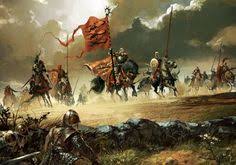
30 I will show portents in the heavens and on the earth, blood and fire and columns of smoke. 31 The sun shall be turned to darkness, and the moon to blood, before the great and terrible day of the Lord comes. 32 Then everyone who calls on the name of the Lord shall be saved; for in Mount Zion and in Jerusalem there shall be those who escape, as the Lord has said, and among the survivors shall be those whom the Lord calls.
3:1 For then, in those days and at that time, when I restore the fortunes of Judah and Jerusalem, 2 I will gather all the nations and bring them down to the valley of Jehoshaphat, and I will enter into judgement with them there, on account of my people and my heritage Israel, because they have scattered them among the nations. They have divided my land, 3 and cast lots for my people, and traded boys for prostitutes, and sold girls for wine, and drunk it down.
4 What are you to me, O Tyre and Sidon, and all the regions of Philistia? Are you paying me back for something? If you are paying me back, I will turn your deeds back upon your own heads swiftly and speedily. 5 For you have taken my silver and my gold, and have carried my rich treasures into your temples. 6 You have sold the people of Judah and Jerusalem to the Greeks, removing them far from their own border. 7 But now I will rouse them to leave the places to which you have sold them, and I will turn your deeds back upon your own heads. 8 I will sell your sons and your daughters into the hand of the people of Judah, and they will sell them to the Sabeans, to a nation far away; for the Lord has spoken.
9 Proclaim this among the nations:
Prepare war,
stir up the warriors.
Let all the soldiers draw near,
let them come up.
10 Beat your ploughshares into swords,
and your pruning-hooks into spears;
let the weakling say, ‘I am a warrior.’
11 Come quickly,
all you nations all around,
gather yourselves there.
Bring down your warriors, O Lord.
12 Let the nations rouse themselves,
and come up to the valley of Jehoshaphat;
for there I will sit to judge
all the neighboring nations.
13 Put in the sickle,
for the harvest is ripe.
Go in, tread,
for the wine press is full.
The vats overflow,
for their wickedness is great.
14 Multitudes, multitudes,
in the valley of decision!
For the day of the Lord is near
in the valley of decision.
15 The sun and the moon are darkened,
and the stars withdraw their shining.
16 The Lord roars from Zion,
and utters his voice from Jerusalem,
and the heavens and the earth shake.
But the Lord is a refuge for his people,
a stronghold for the people of Israel.
17 So you shall know that I, the Lord your God,
dwell in Zion, my holy mountain.
And Jerusalem shall be holy,
and strangers shall never again pass through it.
18 On that day
the mountains shall drip sweet wine,
the hills shall flow with milk,
and all the stream beds of Judah
shall flow with water;
a fountain shall come forth from the house of the Lord
and water the Wadi Shittim.
19 Egypt shall become a desolation
and Edom a desolate wilderness,
because of the violence done to the people of Judah,
in whose land they have shed innocent blood.
20 But Judah shall be inhabited for ever,
and Jerusalem to all generations.
21 I will avenge their blood, and I will not clear the guilty,
for the Lord dwells in Zion.
